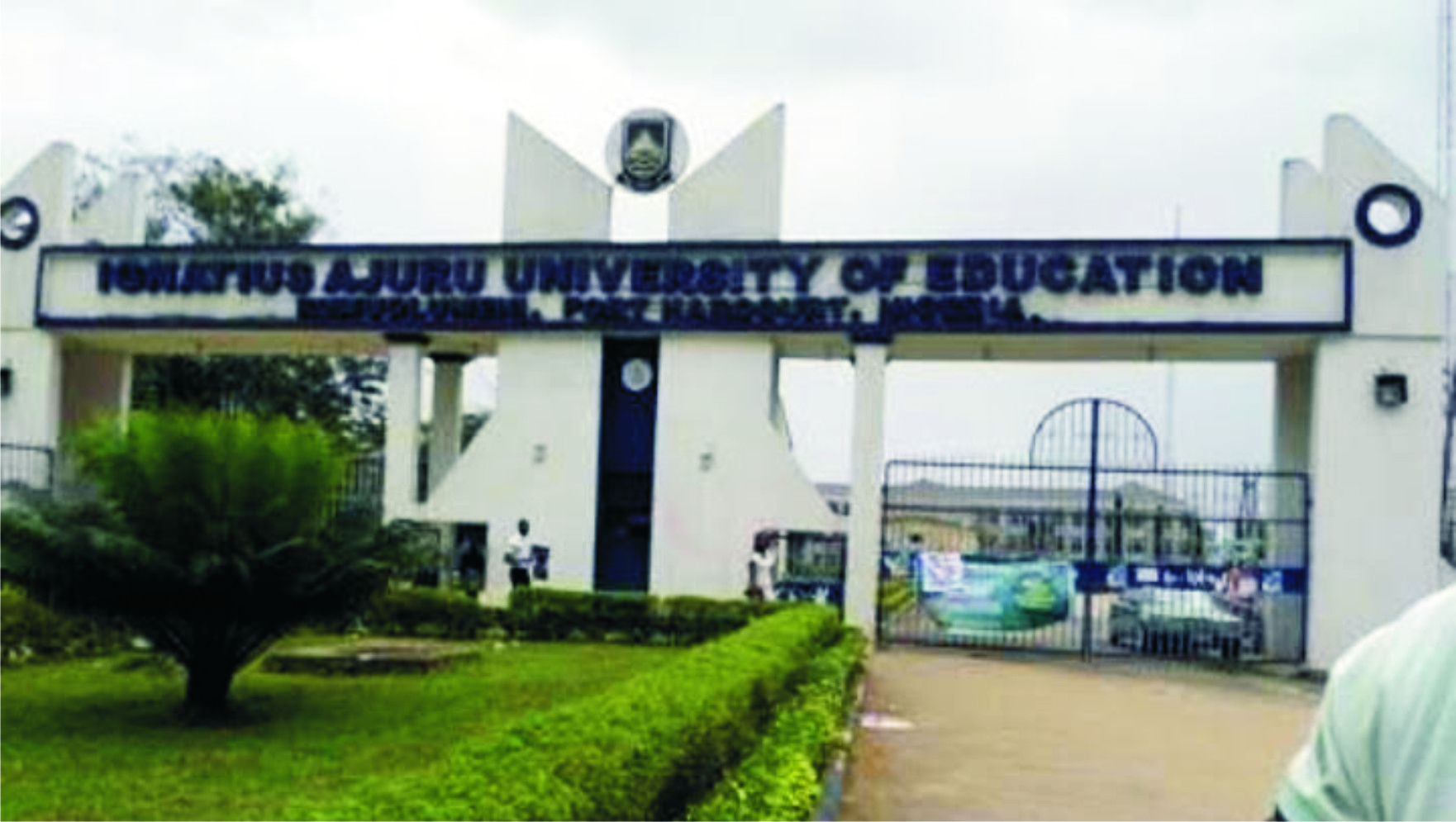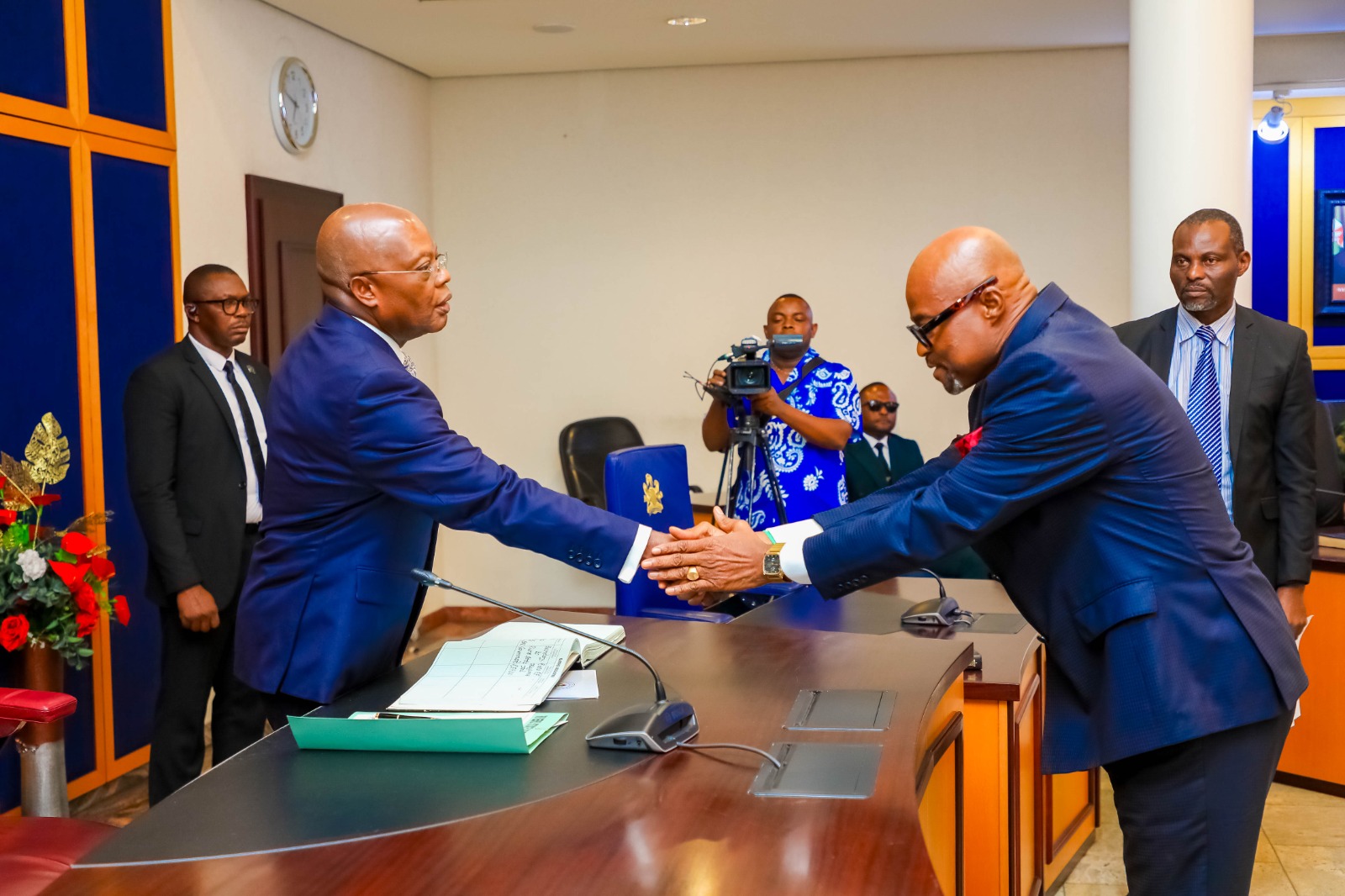Featured
The Shaking House Of Intellect

A recent news about the dismissal of an academic staff in Ignatius Ajuru University of Education, came a few days after a press release by the management of Rivers State University about a similar dismissal of a professor. Certainly, such dismissals must have been preceded by a thorough internal inquiry into allegations of some wrong doing. Hopefully, such inquiries must also have followed the rule of fair hearing and opportunity for an appeal. By the house of intellect, the mind of the reader should please go far beyond tertiary and other institutions of learning where intellectual quibbling pass for the search for truth. As a matter of truth, intellectual culture is a movement which began long ago and whose mission has been to confine and narrow down the scope of perception of humanity. High priests of that movement or culture were the custodians of various responsible for their propagation, truth-wise. Therefore, the house of intellect has many posts and mansions, ranging from academia, monarchy, the ecclesia, the arena of macho-men and the party or profession of death. There are those whose mission is not towards the enhancement of life, but the elimination of those who express contrary views from what the house and culture of intellect had erected as absolute truth. Historically the war of supremacy initiated by the high priests of the intellectual culture had its bloodiest arena in religious movements and proselytism. Readers who may be interested in this line of inquiry, including what horrors humanity had experienced in the past, are enjoined to read The Spanish Inquisition by Jean Plaidy (1978). Similarly, the Crusades or military expeditions between 1096 and 1272 sought to recover the “Holy Land” from the Moslems. History of horrors! Humanity did not experience only history of horrors arising from intolerance, but more of a tyrannical movement to keep the minds of humans as narrow as possible via instruments of fear and intimidation. Such movement of horror and mind control did not begin with Emperor Nero of ancient Roman civilization, neither did it end with Adolf Hitler of Nazi Germany. The Dark Continent of Africa had untold stories of village tyrants and flesh-eating macho-men. Today, emphasis tends to be focused on our institutions of learning, with “sorting, extortion of money and sex for grades” as deadly sins and signs of ultimate debauchery. But these are merely some of the visible evidence of the manifestations of movement of the intellectual culture. This unfortunate trend was enthroned a long time ago and it gradually took roots in the human mind with attendant expressions in actions, attitudes and value orientations. Hardly is anyone left out, except that hypocrisy is a ready camouflage.
Effects of the slow poison of the excrescences of the intellectual culture play out in the enthronement of tyranny and intolerance of contrary views. From the home, to national and international settings, there is the adoration and adulation of precocity or intellectual smartness. Parents take pride in showing off precocious children who become more clever than their grand parents. There begins the shaking of the house of intellect. At a certain time in Nigerian university system, there arose a policy that lecturers without PhD, degrees would be weeded out of the system. At the back of that policy were some dark and myopic motives. For example, Professor Wole Soyinka was not known to hold a PhD Certificate and there were many professors with only first degree, but were role models. In the good old days, professorship was determined by the fact that a university don had some value, ideal or value-added knowledge to profess to humanity. But later-day intellectual heroes and militants, discovered and spread the ideal that big certificates and appellations were synonymous with character, knowledge and productivitiy. Thus began another stage in the shaking of the house of intellect. Money is known to be an able soldier and so powerful that where it steps in, all roads would lie open. For those who have not heard, known or believed, big certificates can be bought and sold, not only in Toronto but in any back-house of intellect. Current stage in the shaking and spoiling trend via intellectual sagacity takes the form of putting square pegs in round holes. By this is meant wrong and corrupt deployment of human talents, skills and abilities where they do not belong or fit in most. Faces of corrupt practices feature where those who should engage in something else become educators and politicians. The result is the abuses of power. Shakespeare would say that humanity is still deceived with ornaments; but have there not been stories of clergy-men eating pepper-soup make with placenta of a woman seven hours after birth? Since eaves dropping and electronic capturing of dark, secret deeds have become popular pranks, Nigerians can expect more shocking revelations. By the way, walls have ears and no deed remains hidden forever! But many believe their sins are hidden! There are individuals and organisations with records and evidence of shocking deeds but who, for security reasons, would not let the cat out o f the bag. It is needful also that Nigerians be cautious of wearing the garb of hypocrisy, in spite of the prevailing culture of sanctimony. The shaking house of intellect will throw up more debris and scum that would be more putrid than we would tolerate. The shaking has begun. From the university system, the shaking would extend that harbour the intellectual virus.
Bright Amirize
Featured
Bring Your Wealth Of Experience To Governance, Ibas Tasks New SSG

The Sole Administrator of Rivers State, Vice Admiral Ibok Ete Ekwe Ibas (rtd), has charged the new Secretary to the State Government (SSG), Prof Ibibia Lucky Worika to bring his wealth of experience to bear in governance of the State.
Vice Admiral Ibas (rtd) gave the charge shortly after swearing in the new SSG at the executive chambers of Government House on Wednesday night.
The Administrator who congratulated Prof Worika on his appointment said the choice was not merely an administrative decision but a statement of intent.
Vice Admiral Ibas (rtd) explained that the new SSG has an unparallel expertise in law, policy and international governance, which align perfectly with the mission to restore law, order, integrity and public trust in Rivers State.
He said: “To our new SSG, the task ahead is onerous, but your track record leaves no doubt in our minds that you will prove your mettle. Rivers State needs your intellect, grit and unweaving dedication. Together, we will write a new chapter of progress for this great state.
“Prof Worika’s role will be critical in driving this vision, ensuring that every policy, every decision and every action is in consonance with this administration’s mandate to restore law and order, stabilize the polity and to create the necessary conditions for the restoration of democratic institutions and representations.”
Vice Admiral Ibas (rtd) pointed to his maiden address to Rivers people wherein he emphasised that his administration will be committed to delivering an effective governance that is anchored on transparency, accountability and service.
He therefore, enjoined the new SSG to brace up to the demands of his office, and offer his best service as required while also working cooperatively with civil servants.
Vice Admiral Ibas (rtd) said: “You have no time to settle down. You must roll up your sleeves and get to work with the team.
“Our civil servants with whom we will work closely to run this administration are critical stakeholders and we must work with them to ensure that the state continues to function effectively during this administration.
“To the Permanent Secretaries and civil servants as a whole, once more I will ask your kind cooperation and support as we work to achieve our objectives at this time,” he added.
Featured
I Am One Of You, Sole Administrator Tells Rivers People …Warns Against Violence, Crude Oil Sabotage

The Sole Administrator of Rivers State, Retired Vice Admiral Ibok-Ete Ibas (rtd), has assured residents that he is not in the State as a partisan actor or political competitor but as a stabilising force to restore governance and order.
In a state broadcast yesterday, Ibas, who assumed duty at Government House, Port Harcourt, emphasised his commitment to protecting civil liberties and ensuring the safety of all citizens.
However, he issued a stern warning against crude oil sabotage and violence, urging residents to resist any temptation to return to past hostilities.
“For decades, I have dedicated my life to the service of our great nation—first as the 20th indigenous Chief of Naval Staff and later as Nigeria’s High Commissioner to Ghana. I answered this call out of the need for peace in Nigeria, and most importantly, in Rivers State,” Ibas stated.
Describing the prolonged political impasse as a major setback to governance and democracy, he acknowledged the hardships faced by families and businesses due to the prevailing uncertainty.
“As a son of the Niger Delta, I am one of you. I feel the weight of this crisis on families, businesses, and the future of our people,” he said.
Ibas commended President Bola Tinubu’s decisive action in declaring a state of emergency in Rivers State, stressing that it was a necessary move to restore stability and revive economic activities.
“My mandate is clear: restore law and order, ensure stability, and create an enabling environment for economic growth. But this mission requires collective support from all stakeholders, regardless of political affiliation or ethnicity,” he stated.
He discouraged attacks on oil infrastructure, reminding residents of the devastating environmental and economic consequences of such actions.
“The Niger Delta has moved beyond the destruction of oil facilities. We must resist the temptation to return to those ugly days,” he cautioned.
While pledging to uphold civil liberties and the rule of law, the Sole Administrator warned that lawlessness and violence would not be tolerated.
“We will not act arbitrarily, but we will not hesitate to deal decisively with anyone who threatens the peace and stability of Rivers State,” he declared.
Ibas revealed that he had concluded a State Security Council meeting where strategic measures were outlined to de-escalate tensions and prevent further conflict.
Expressing gratitude to President Tinubu for entrusting him with the responsibility, he also acknowledged the National Assembly for approving the emergency declaration.
“I will work closely with the national leadership under the guidance of the President. I am optimistic that Rivers State will emerge stronger and greater,” he concluded.
Featured
Abuja Truck Explosion Death Toll Rises To 10 …As Another Truck Crashes On Same Spot

The Federal Capital Territory Emergency Management Department has confirmed that 10 persons have died in the truck explosion that occurred near Karu bridge, along the Abuja-Keffi Expressway, on Wednesday.
The FEMD’s Head of Public Affairs, Nkechi Isa, confirmed the numbers in a statement, yesterday.
The Acting Director General of the Emergency Department, Abdulrahman Mohammed, had earlier confirmed that eight persons had died as of yesterday morning, with five confirmed dead on the scene, and four others burnt beyond recognition.
““Five people were taken dead from the scene yesterday (Wednesday). Out of the people that were injured, one died, making six. Then this morning (yesterday), when I asked my people to go round, they discovered that two had already died again, making eight. Four of them from yesterday were burnt beyond recognition.”, he explained.
However, in her statement, Isa said the Head, Forecasting Response and Mitigation of FEMD, Mr Mark Nyam, said eight bodies were deposited at the Karu Hospital Morgue, one body at the Asokoro Distinct Hospital Morgue while another body was deposited at the National Hospital.
He added that some victims had been referred to the Gwagwalada Teaching Hospital, Federal Medical Centre, Keffi, and Cedercrest Hospital Abuja for proper care.
Part of the statement reads, “The FCT Emergency Management Department FEMD can confirm that 10 persons lost their lives to the truck explosion that occurred at Karu bridge along Abuja / Keffi expressway.
“The Head Forecasting Response and Mitigation of FEMD, Mr Mark Nyam said eight bodies were deposited at the Karu Hospital Morgue, one body at the Asokoro Distinct Hospital Morgue while another body was deposited at the National Hospital.”
He informed that over 30 persons suffered various degrees of burns.
“Some of the victims have been referred to Gwagwalada Teaching Hospital, Federal Medical Centre,Keffi and Cedercrest Hospital Abuja for proper care,” he said.
Isa also stated that no fewer than 10 vehicles were burnt during the incident, adding that the FEMD boss after a visit to the incident scene, appealed to motorists to observe traffic rules and regulations.
He also cautioned against reckless driving, dangerous overtaking and poor maintenance of vehicles, while urging FCT residents to always use the 112 emergency toll free number in the event of an emergency.
Meanwhile, barely 24 hours after the incident, another fertiliser-laden truck has collapsed on the same spot.
The Tide learnt that the incidence occurred at about 3:54pm yesterday.
The Head of Public Affairs of the FCT Emergency Management Department, Nkechi Isa, confirmed the accident in a statement, stating that the truck collided with a Hijet and a dump truck, adding that no life was lost.
She cautioned road users to drive with caution as the Federal Road Safety Corps was making efforts to tow away the affected vehicles, to avoid traffic built up.
“Another accident has occurred under Karu bridge along the Abuja-Keffi Expressway. Thankfully, no life was lost to the incident. Our Search and Rescue say the accident occurred when a truck laden with fertilizer ran into a Hijet and a dump truck also known as tipper.
“Motorists are advised to drive with caution as the Federal Road Safety Corps is taking steps to tow away the affected vehicles in order to avoid traffic built up,” the statement read.
Meanwhile, several videos showed some persons trying to clear the fertiliser bags from the fallen truck to ease traffic.
-

 News5 days ago
News5 days agoNigeria’s gas sector attracts over $5bn in investments
-

 News5 days ago
News5 days agoAdesina advocates Africa-led ‘Marshall Plan’ on conflict-hit regions
-

 News5 days ago
News5 days agoFederal High Court judges begin 2 weeks Easter vacation
-

 News5 days ago
News5 days agoIbas Tasks Youths On Peace, Rivers Dev
-

 News5 days ago
News5 days agoMilitary Uncovers Plot To Establish ISWAP Bases In Plateau, Bauchi
-

 News5 days ago
News5 days agoTinubu Orders Clampdown On Illegal Tertiary Institutions
-

 News5 days ago
News5 days agoSoyinka Slams NBC Over Ban On Eedris Abdulkareem’s Protest Song
-
News5 days ago
RSG Warns Against Fake News In Rivers





